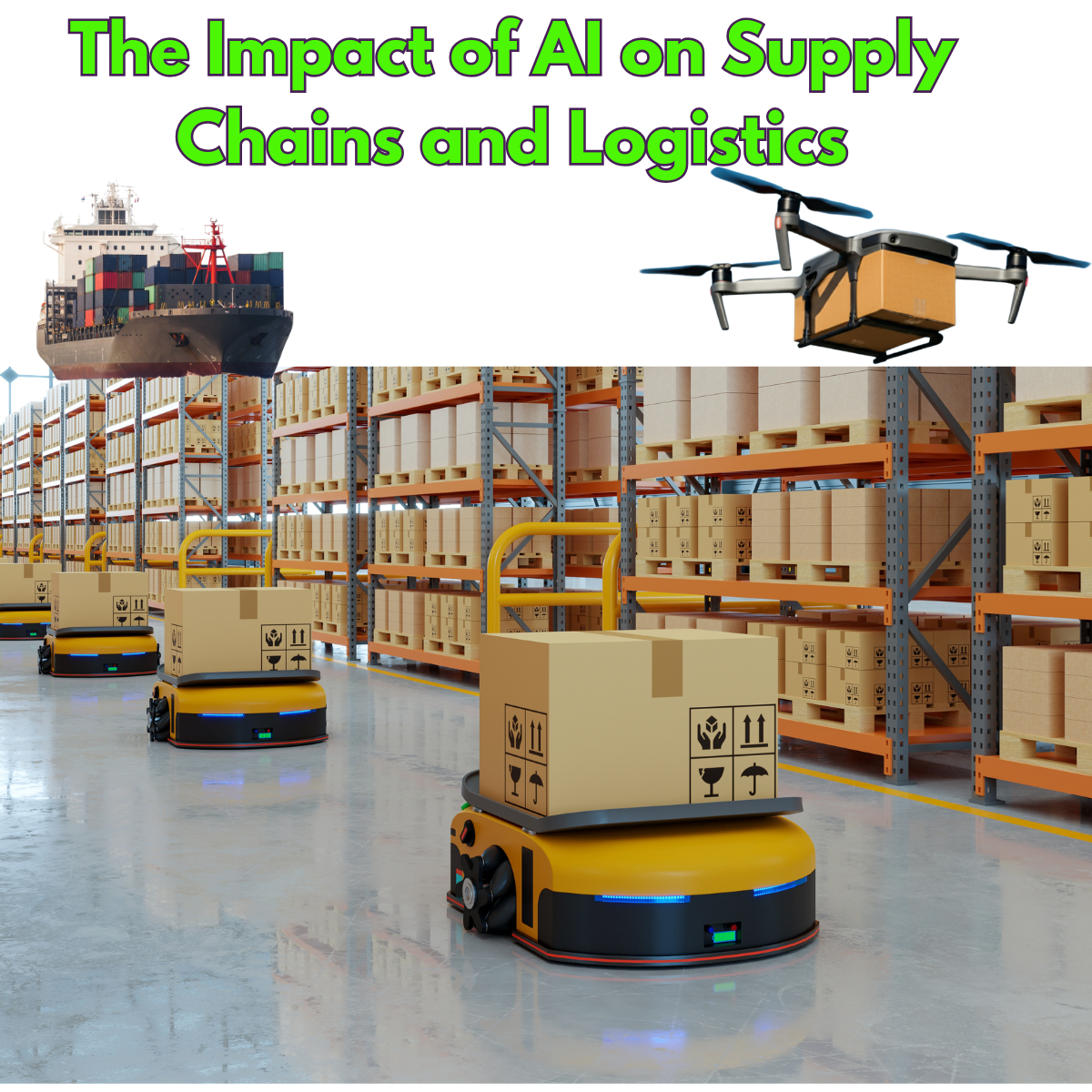Posted At: Aug 18, 2025 - 382 Views

🚛 The Impact of AI on Supply Chains and Logistics
Supply chains and logistics are the backbone of global commerce—but they are also some of the most complex systems to manage. From fluctuating consumer demand to global disruptions, businesses face constant challenges in ensuring products reach the right place at the right time.
Enter Artificial Intelligence (AI). By enhancing forecasting, streamlining operations, and boosting resilience, AI is transforming how supply chains function—making them smarter, faster, and more sustainable.
🎯 Enhanced Demand Forecasting
Traditional forecasting methods often fall short in volatile markets. AI, however, excels at analyzing large volumes of structured and unstructured data, providing highly accurate predictions.
- 🔹 Predictive Analytics – AI algorithms detect trends from historical data, consumer behavior, seasonal changes, and even economic indicators to anticipate demand with precision.
- 🔹 Inventory Optimization – Smarter forecasts allow companies to balance supply and demand, reducing carrying costs, minimizing stockouts, and ensuring customers find products when they need them.
💡 Result: Leaner inventories, reduced waste, and better customer satisfaction.
🎯 Improved Supply Chain Visibility
Visibility is a cornerstone of efficient supply chain management—and AI takes it to the next level.
- 🔹 Real-Time Tracking – AI-powered platforms monitor goods across the entire chain, providing instant updates on shipment status, location, and estimated delivery times.
- 🔹 Data Integration – AI integrates siloed data from suppliers, logistics partners, and retailers, offering a holistic view of the supply chain to identify bottlenecks and streamline processes.
💡 Result: Transparency that builds trust and agility in responding to disruptions.
🎯 Automated Decision-Making
Repetitive tasks slow down supply chains. AI-driven automation enables faster, more accurate execution.
- 🔹 Intelligent Automation – Routine activities like order processing, invoicing, and scheduling can be handled by AI, reducing human error and improving efficiency.
- 🔹 Dynamic Pricing – AI algorithms adjust prices in real time, factoring in demand, competitor strategies, and market fluctuations—boosting profitability and competitiveness.
💡 Result: Faster workflows and smarter pricing strategies.
🎯 Enhanced Logistics Operations
AI doesn’t just optimize planning—it improves the physical movement of goods.
- 🔹 Route Optimization – By analyzing traffic patterns, weather data, and delivery windows, AI identifies the most efficient delivery routes, cutting costs and emissions.
- 🔹 Warehouse Automation – Robotics, AI-powered inventory systems, and automated picking solutions accelerate warehouse operations, reduce labor costs, and minimize errors.
💡 Result: Faster deliveries and more efficient logistics operations.
🎯 Risk Management and Resilience
Global supply chains face countless risks—from equipment breakdowns to geopolitical disruptions. AI strengthens resilience by preparing businesses for the unexpected.
- 🔹 Predictive Maintenance – AI analyzes machine and sensor data to detect early warning signs of equipment failure, preventing costly downtime.
- 🔹 Scenario Planning – AI-driven simulations help organizations prepare for disruptions such as natural disasters, pandemics, or trade policy shifts, ensuring rapid recovery.
💡 Result: Resilient, proactive supply chains that adapt to challenges.
🎯 Sustainability and Efficiency
Sustainability is no longer optional—it’s a necessity. AI helps supply chains align efficiency with eco-friendly practices.
- 🔹 Reduced Waste – Smarter demand forecasting and process optimization minimize overproduction and excess inventory.
- 🔹 Eco-Friendly Practices – AI suggests sustainable suppliers, optimizes transportation routes to lower emissions, and supports greener resource usage.
💡 Result: Cost savings combined with a reduced carbon footprint.
AI is not just an add-on—it’s becoming the engine that drives modern supply chains and logistics. From forecasting demand to optimizing last-mile delivery, AI empowers organizations to be more efficient, resilient, and sustainable.
In an era where speed and agility are everything, companies that embrace AI-driven supply chains will not only stay competitive but also lead the way toward a smarter, greener future.
